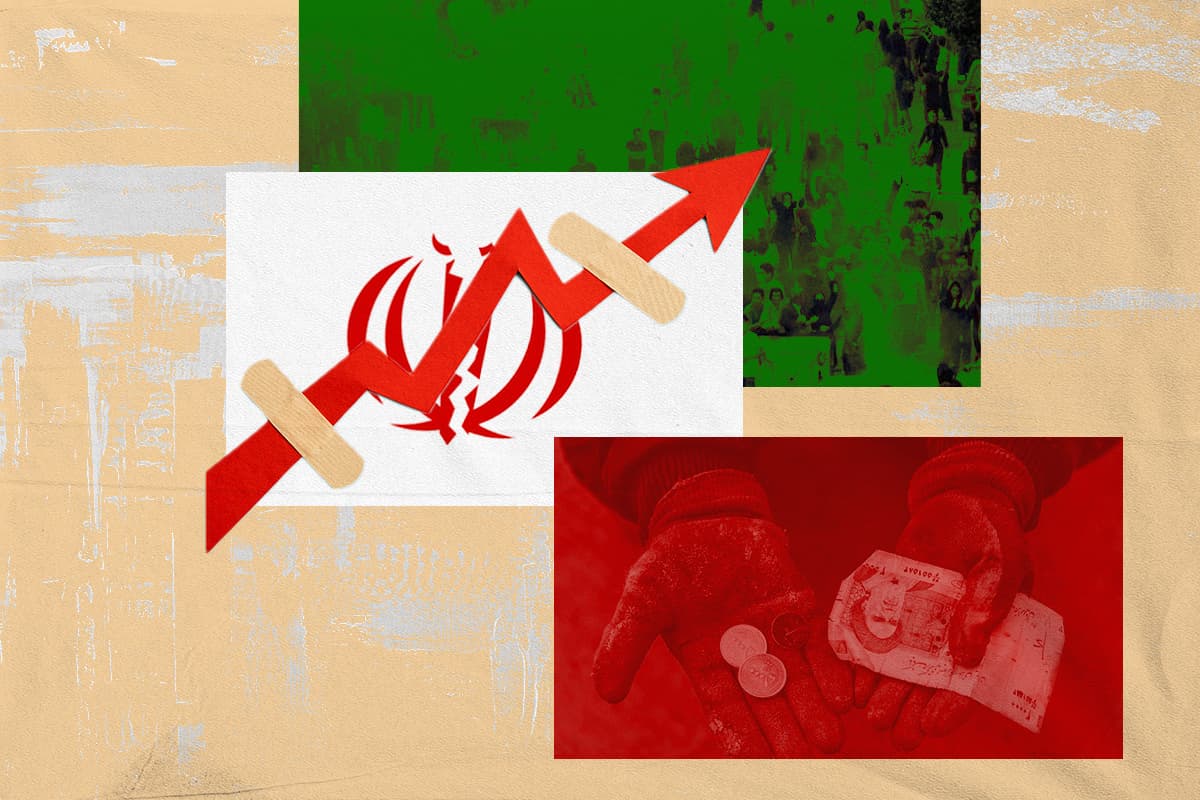Where is Iranian civil society headed? Is the project of Revolution 2.00 dead? Has reformism been thoroughly defeated? Is “regime change” the main demand of Iran’s civil society, or are economic prosperity, security, and peace just what civil society desires? These questions have increasingly been coming up among sociologists, economists, political scientists, politicians, and journalists. Perhaps the prospect of war, harsh sanctions-related economic conditions, the lowest recorded turnout in the last two elections, and the social upheaval of the Woman, Life, Freedom uprising have contributed to such speculation about Iran’s civil society and the stability of the Nezam.
In a series of video interviews with Sharq last week, prominent sociologist Maqsud Farasatkhah spoke of a prevalent nihilistic trend in Iran, arguing that Iran’s political system, rather than fostering hope, was “socially constructing hopelessness and despair.” Asked how, then, one could explain the fact that people travel, go to the beach, attend concerts, and laugh, Farastkhah responded, “I, too, wonder about these questions and have been studying these trends for 20 years.” He added that Iranian society craves happiness and seeks hope wherever it can find it. Iran’s political system, however, is moving in the opposite direction and turning the country into one of the unhappiest in the world where negative emotional experiences are commonplace. Examples of this despair are everywhere. Two days ago, a “revolutionary” judge in Isfahan named Mohammadreza Tavakkoli issued a death sentence for popular rapper Tumaj Salehi for his supposedly anti-regime songs in support of the Woman, Life, Freedom movement. The incarcerated Narges Mohammadi, last year’s recipient of the Nobel Peace Prize, calls this ruling an attempt by the regime to “execute our social movement.” Another example of this ongoing discussion about hopelessness relates to reformism in Iran. A few days ago, well-known reformist theoretician Sa’id Hajjarian, who had tweeted that the Ra’isi administration had destroyed everything, was prompted to answer a critic who detected a sense of hopelessness in his tweet. “There is still a glimmer of hope left in me,” Hajjarian said.
Hesam Salamat, another academic sociologist, claimed in a video interview that Iranian society was faced with an “organic crisis.” Society has imploded, he said, and is unable to build anything in its place. Iranians do not see a future for themselves, nor have a clear picture of what any future might look like. The pervasive fear of war with Israel and the West is palpable, but the country is also witnessing a civil war between the people and the government. Salmat, however, is more optimistic than his colleague Farasatkhah, who sees Iranian society gravitating toward a destructive nihilism. Salamat argues that Iranian society wants a different future, and that may provide that glimmer of hope needed for change. Farasatkhah, however, thinks that what society needs is a narrative to create hope in the first place and replace the feelings of despair and melancholy. This new hopeful narrative could be what another sociologist, Taqi Azad-Armaki, is trying to provide. In a video interview with Sharq, Azad-Armaki offers an optimistic view of the future for Iran and Iranian society. Beginning with a sociological assessment of last year’s Majles election, which witnessed the lowest ever voter turnout in the Islamic Republic, he points to the disparity in participation between big cities and small towns and municipalities, which points to the gap between the demands of each of those communities. He argues that the “purification” project of the hardliners will boomerang to create its opposite, entirely different from the current Islamic republic. Iranian society, he claims, has decided that regime change is not desirable, and that implosion is not a possibility. Social forces, especially in small cities and municipalities, are discovering their powers and are going to end the monopolization of power by small elite groups that are ruling now. Azad-Armaki claims that a new “Iranian” Islamic republic will be born that will look entirely different from what we have currently. It will be secular because society—and even clerics—are increasingly becoming secular. This new republic will not be influenced by the left and, thus, will not have an anti-Western character.
At this point when the purification project has led to the dominance of super-hardliners everywhere, it is hard to share Azad-Armaki’s optimism. Is he producing a much-needed narrative of hope or is he providing an alternative to implosion and revolution? What is clear here is the prevalence of despair in civil society, which also could explain Azad-Armaki’s messianic vision for Iran’s embattled citizenry.







